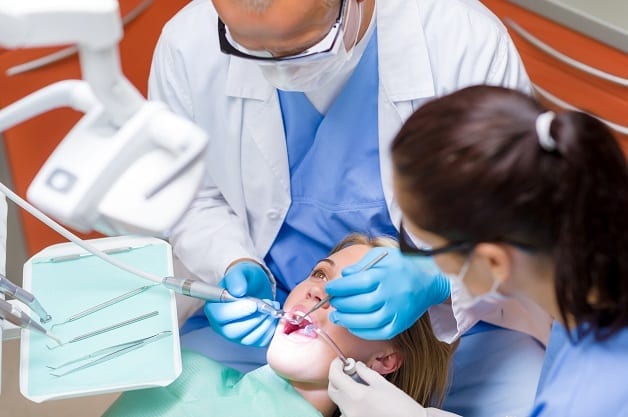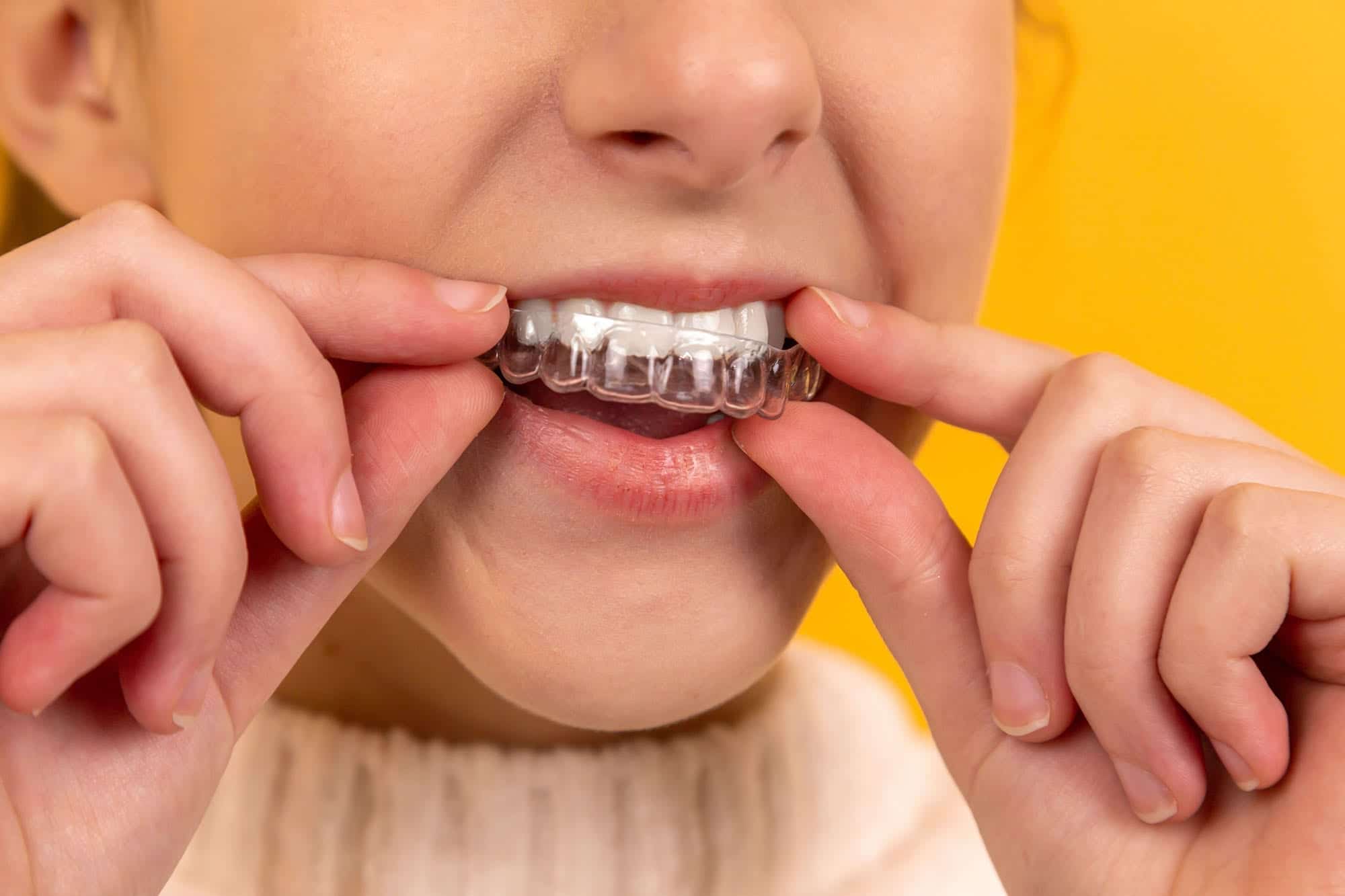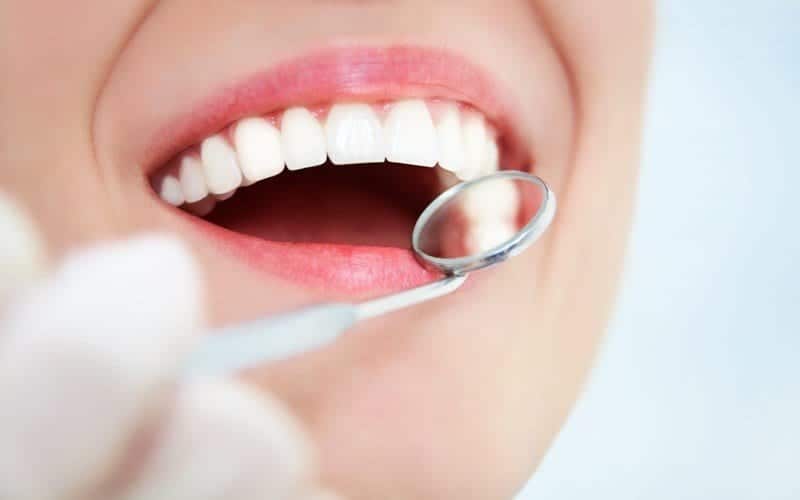Periodontics is a branch of dentistry that focuses on the structures surrounding and supporting the teeth. A periodontist is a dentist who practices periodontics or specializes in the prevention, treatment, and diagnosis of periodontal disease.
Dentists who practice periodontics are also experts when it comes to the treatment of oral inflammation and the placement of dental implants. In order to become a licensed periodontist, the dentist must receive training in the aforementioned areas while also attaining 3 extra years of education beyond traditional dentistry.
They also require training when performing cosmetic periodontal procedures and restorative treatments that ensure the function and form of the teeth when all is said and done. They’re the go-to dentists when it comes to dealing with gingivitis and periodontal disease, in other words.
Page Contents
What Does a Periodontist Do?

Periodontists are responsible for a myriad of periodontal treatments, chief of which are root planing and scaling. They’re the ones that find ways to treat periodontitis depending on the severity of the condition. You as a patient will most likely call them in order to clean the infected surface of the tooth’s root and remove the plaque that has accumulated there.
- Debridement: They basically perform what’s known as root surface debridement or the removal of diseased or damaged oral and dental tissue so that the body can heal those areas up with healthy tissue replacements instead. The tooth cannot recover its former healthiness until all plaque and affected tissues are removed.
- Surgery: Periodontists are also quite skilled when it comes to performing oral surgery. You can depend on them when it comes to placing, maintaining, and repairing dental implants instead of a dental surgeon. They can also do bite adjustment, splinting, soft tissue or bone grafts, and flap surgery for good measure.
- Advanced Gum Disease: Gingivitis is a mild form of gum inflammation that can be reversed with regular brushing, flossing, and mouthwash. However, advanced or complicated cases of periodontal disease require the assistance of periodontists. They’re specially trained to diagnose the underlying causes of the condition and offer the correct restorative procedures and treatments every time.
- Works in Tandem: Typically, a general practitioner dentist will have a periodontist contact in case he’s faced with severe periodontal disease that requires deep cleaning. From there, both dentists will work in tandem or conjunction with one another to form and tailor a comprehensive plan to resolve your gum disease in a way that keeps it from recurring in the future.
Who Should See a Periodontist?
Some periodontal issues can be resolved by a regular dentist. However, more serious cases require the attention of a periodontist specialist. It’s especially important to be treated by this expert because research has linked unresolved periodontal disease to a number of chronic health issues such as the following:
- Diabetes
- Osteoporosis
- Heart disease
- Respiratory disease
- Certain forms of cancer
The American Dental Association (ADA) claims that almost 50 to 90 percent of Americans over 30 years old have some form of gum disease. It is unknown as of yet why this is so, but it does imply that periodontal diagnosis and treatment requires an increased level of expertise that can only be found from a trained specialist like a periodontist. With that in mind patients with moderate or severe gum disease will usually get treated properly with the assistance of a family dentist and recommendations form a periodontist.
What Should You Expect at Your Periodontist Appointment?

When undergoing a periodontist appointment, the dentist specialist will review your medical history and dental history. He won’t operate on you right away or diagnose what’s wrong with you. He’ll need to assess your medical history first.
- Medications and Conditions: He will then ask whether you take certain medications or you’re under treatment for any other health issues such as heart disease or diabetes. Your periodontal care can be impacted by these co-occurring, preexisting conditions.
- Pregnancy Concerns: Don’t forget to inform the periodontist if you’re pregnant as well. According to studies, women with periodontal disease could be at higher risk of bad outcomes during pregnancy, which includes premature deliveries and low birth weight, among other issues.
- Assessment and Diagnosis: After the periodontist has reviewed your medical history, he will give you a thorough assessment in order to properly diagnose how severe or mild your periodontal issue is. He’ll then provide advice and recommendations on how to best treat the condition when push comes to shove.
Types of Periodontal Infections
Around 50 percent of U.S. adults have periodontal disease and the number can go up to 90 percent if you were to include mild gingival disease like gingivitis. Gingivitis is the earliest phase of oral soft tissue infection that can become worse and graduate all the way to periodontitis if it’s not treated as soon as possible.
- Gingivitis: Gingivitis happens when biofilm known as “plaque” sits along the gumline and infects the surrounding soft tissue, leading to symptoms like tender, swollen gums. Plaque is composed of a community of bacteria, leftover food, and waste products combined in one filthy concoction. The presence of plaque can cause redness, tenderness, and swelling along the gum line and margins of your teeth. When plaque hardens or gets calcium deposits, it turns into tartar.
- Deep Pockets and Receding Gums: If your gingivitis isn’t treated immediately, the disease could spread into the surrounding structures of your teeth. At this point, the gums start detaching their support from the tooth, which then exposes the bone and results in bone loss. As these pockets deep, you might see the gum line begin to recede, resulting in huge gaps between your teeth. When you floss or brush, you might have issues with bleeding.
- Periodontal Disease: Once the deep pockets start to happen and your gingivitis has gotten worse then you now under the active periodontal disease phase of your dental infection or condition. If treated early on, you can reverse this condition with the help of a hygienist and your family dentist. However, it will continue to worsen until your teeth all fall out of your mouth by themselves if left untreated.
The Need to Treat Gum Infections

Periodontal disease doesn’t only hasten tooth loss or induce bad breath (halitosis). It’s also linked or correlated to various conditions and diseases such as the ones outlined below.
- Stroke
- Diabetes
- Heart attack
- High blood pressure
- Respiratory illnesses
- Reproductive problems
- Infertility
- Premature labor
- Erectile dysfunction
One of the main causes of adult tooth loss is gum disease. This is the reason why you should be able to acknowledge and fix symptoms earlier rather than later. Once tooth mobility (the dental term for loose teeth) occurs, your teeth are at risk of falling off on their own.
Treatments for Periodontal Infections
If you have an advanced infection, deep cleaning is inadequate to address it. You’ll need something stronger, like intensive therapy from your dentist and/or periodontist to save your teeth from extraction. Otherwise, you’ll need to shift your focus on dental prosthodontics for any tooth that’s too diseased to save.
- Prophylaxis and Deep Cleaning: Dental cleaning or prophylaxis is designed to prevent conditions like gum infections. It can even reverse gingivitis so that your teeth and gums end up healthy when all is said and done. However, deep cleaning that involves periodontal scaling and root planing is called for in order to clean hard-to-reach areas, deep gum pockets, and diseased tooth roots using special apparatuses and the expertise of a periodontist.
- Advanced Periodontal Treatments: It’s all about reversing your periodontal disease to save whatever’s left of your teeth. The tooth can, for example, be secured by gum or bone grafts. Gum flap surgery can also help make the area easier to deep clean. Antibiotics can also be placed within the gum pockets themselves to kill all bacteria and significantly reverse the infection altogether.
- Preventative versus Therapeutic: Once you’re suffering from periodontal disease, your dental care shifts from preventative to therapeutic. Therefore, your insurance provider for dental treatments will dictate how much coverage they’re willing to give you in light of the policies you’ve agreed to and the papers you’ve signed. Most plans are preventative in nature and most therapies are out-of-pocket or partially covered expenses.
- The Limits of Insurance Coverage: In other words, the better you are at teeth care the more coverage you’ll get. However, the worse your gum disease gets to the point where infections develop, the more you’ll have to pay out-of-pocket because such treatments have no insurance coverage. Just remember that your infection won’t clear up on its own without care. You could literally lose your smile by putting these things off.
Important Facts about Gum Disease and Periodontics

Here are the important facts you should take note about gum disease and how it affects your overall dental and oral health.
- The Gum Disease Process: Gum disease happens whenever the tissues and bones that support teeth get a bacterial infection. This germ invasion then leads to compromising your immune system because it has to send out antibodies to kill the infection before it can get worse. Your gums will then become inflamed, get red, bleed, and gain some tenderness or sensitivity to them.
- Not So Harmless: A host of complications and diseases are linked to gum disease, many of them serious health issues like preterm babies, certain types of cancer, heart disease, and stroke. Gum disease can also serve as one of the top causes of tooth loss among adults. If you were to develop heart ailments due to gum disease, it can also prove fatal.
- Gingivitis: The two main stages of gum disease are gingivitis and periodontitis. Gingivitis involves gum infection due to plaque invading the tooth structures and supporting tissues, such as the gums themselves. It typically involves bleeding and inflammation. Your gums require extra attention if they suffer from gingivitis. Thankfully, it can be reversed with improved oral hygiene and dental treatments.
- Periodontitis: Once your gingivitis has progressed, it will develop into outright periodontitis. Periodontitis is basically unaddressed gingivitis that has gotten worse. The plaque and tartar at this point have probably ended up deep below the gums, which will then help form pockets as your gumline recedes further back. This will then dead to the destruction of your supporting bone structures and thee death of your periodontal ligaments, resulting in your teeth becoming separated from the bone.
- Periodontal Complications: Periodontitis is a condition that’s quite uncomfortable and can lead to great pain as you eat or bite down on your teeth. You can also suffer from symptoms and complications like loose teeth, mouth sores, bad breath, swelling, bleeding, and bite alignment issues. What’s worse is that it can get so bad that your gums might have pus coming out of them altogether.
- It’s Preventable: If you fail to get treatment for your periodontitis, the pocket will continue to deepen and enlarge. Meanwhile, the infection will keep on eating at the tissue of your jawbone until your loose teeth simply fall out on their own. Thankfully, it’s something you can prevent. After all, prevention is better than the cure. An ounce of prevention can do you more good than a pound of cure.
- How to Prevent Periodontitis: The periodontitis condition can be preventing by performing regular dental hygiene practices like brushing your teeth twice daily, gargling with antiseptic or antibacterial mouthwash, and flossing in such a way that you scrape off the plaque and film of every individual tooth. Also visit your dentist regularly, at least twice a year or every three months.
The Verdict
What does gum disease, gingivitis, periodontitis, and periodontal disease have in common? They’re different terms to describe gingival and periodontal infection that affects the bone and soft tissues that support your teeth. In turn, periodontics is the specialty that focuses on treating this type of inflammation before it could adversely destroy your gums and other supporting dental structures. This dentist type also specializes in the treatment, prevention, and diagnosis of periodontal disease.
He can also place dental implants like a dental surgeon could. The study of periodontics ensures that periodontists receive extensive training in the areas of dental surgery, periodontal disease treatment, and periodontal cosmetic procedures. They also undergo 3 additional years beyond dental school to cover such subjects. They’re periodontal disease experts who are also adept when it comes to picking up state-of-the-art techniques in the diagnosis and treatment of periodontitis.
Thantakit International Dental Center is Thailand’s longest established dental center. Situated in Bangkok, our clinic is renowned across the world as a destination for world-class dentistry, with most of our patients flying to us from Australia.
Please contact us today and get a FREE dental consultation.












